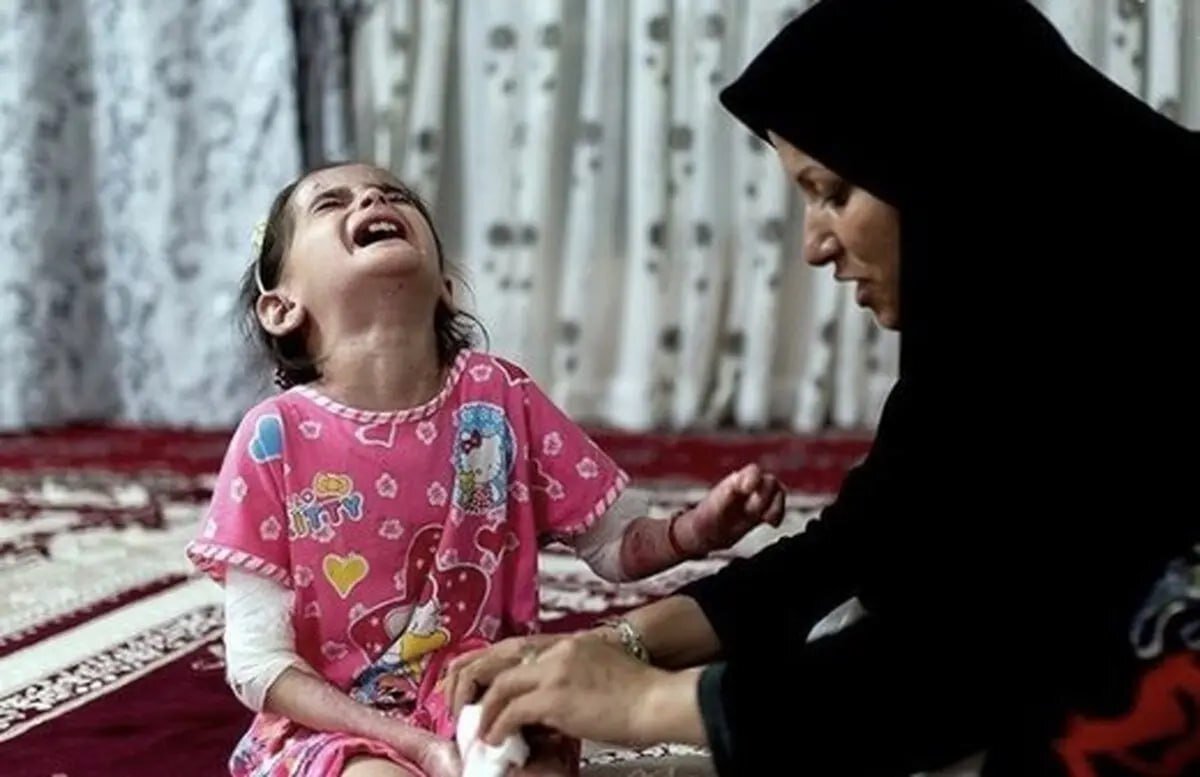From butterfly children to Tehran-Riyadh détente:

In a recent Tehran Times article, Iran's newly elected president, Masoud Pezeshkian, issued his message to the world, mentioning the untold suffering, death and destruction caused by America's unilateral sanctions on the Iranian people.
As a Chinese journalist who worked in Iran from 2021 to 2023, I deeply resonate with his message, having witnessed the devastating impact of these sanctions firsthand.
During my time in Iran, I interviewed many ordinary Iranians whose lives had been turned upside down by the sanctions. One single mother, for instance, worried about disappointing her daughter during Nowruz because she couldn't afford gifts. During the pandemic, due to medication shortages, a nurse told me they had to prioritize patients based on the severity of their conditions, which sometimes meant deciding between life and death. A middle-aged man in my neighborhood sold roses in traffic to make ends meet. In Tehran, the red roses symbolized not romance but the bitter struggle and resilience of Iranians under sanctions.
The most heart-wrenching stories I wrote were those of Iran's "butterfly children," who suffer from epidermolysis bullosa (EB), a rare skin disorder. These children, named for their fragile skin, endure constant pain from blisters and wounds. I met six-year-old Rezaei (a pseudonym), whose small body was covered in scars and open sores. His fingers had fused together, making them unusable. The Swedish company Molnlycke produces a special dressing, Mepilex, which could alleviate his suffering, but U.S. sanctions have prevented its export to Iran.
A poignant plea from the mother of an EB child remains etched in my memory. She implored those behind the sanctions to consider, even for a moment, what they would feel if their own loved ones were in such pain. "What would they do if their own children, relatives, or acquaintances were suffering from the same disease?" she asked.
Last year, I shared the stories of these "butterfly children" in a program on China's largest television network, reaching audiences across the country. Many readers left comments lamenting the cruelty of the sanctions and the innocence of the children. When I told this story face-to-face to students and media professionals in Beijing, Shaanxi, Chongqing, and Xinjiang, audiences reacted with solemnity and tears, especially mothers who were deeply moved. Some asked how they could help.
These experiences underscored the mutual goodwill between Chinese and Iranian people. During the pandemic, China sent the most vaccines to Iran, and I received my vaccination there.
Today, the social media accounts of Iran's Chinese embassy on China's Weibo and Douyin are filled with supportive comments from Chinese users, wishing for a better future for Iran. Recently, the embassy's post sharing President-elect Pezeshkian's appreciation for friendship with China and Tehran's eagerness to collaborate more extensively with Beijing received numerous positive responses from Chinese netizens.
China's goodwill was reciprocated in 2022 when Tehran's Azadi Tower was illuminated in red to celebrate the Chinese Lunar New Year.
Personally, in Iranian parks or taxis, I often encountered friendly Iranians who, upon learning that I was from China, eagerly asked me various questions. Many of these curious individuals were young, and they often wanted to take photos with me as a memento.
Curiosity and goodwill towards China peaked in 2023 when Iran and Saudi Arabia resumed diplomatic relations under Chinese mediation. Many Iranian friends called me, expressing their joy. Even in September of that year, after I had left Iran, my friends forwarded me videos of football star Cristiano Ronaldo being warmly welcomed during the first visit of a Saudi team to Iran since 2016, highlighting China's role in facilitating this newfound happiness.
In his Tehran Times article, President-elect Pezeshkian praised China's mediation as showcasing its constructive vision and forward-thinking approach to international affairs. I fully understand why Tehran values this progress. Strengthening ties with neighboring nations and friendly countries like China is Iran's strategy to break through the U.S. encirclement, and has yielded tangible results.
President-elect Pezeshkian has also expressed his intention to seek negotiations to lift sanctions. Having witnessed the profound suffering caused by these sanctions, I sincerely hope he succeeds. Many of my fellow Chinese share this hope, especially students learning Persian.
Because of my work, I met Chinese individuals of various ages who spoke Persian. A friend who attended university from 2014 to 2016 said his classmates were highly sought after for jobs. This was during the JCPOA period, which lifted U.S. sanctions and increased opportunities for Persian language learners.
However, those who started their studies four years later faced a different reality. By 2018, Washington had withdrawn from the nuclear agreement and imposed harsher sanctions. Companies feared secondary sanctions and withdrew from Iran, making it difficult for these newer graduates to find jobs related to their Persian studies, forcing many to change career paths.
Many companies are keenly watching the changing internal and external environment of Iran, hoping for a favorable outcome that would allow them to re-enter the market. During the optimistic nuclear talks in Vienna in 2021 and 2022, some businesses were evaluating the possibility of returning, anticipating a breakthrough that unfortunately did not materialize.
As I continue to observe Iran's future developments, I, and many in China, earnestly hope that fortune will finally favor this ancient land, bringing an end to its prolonged suffering and paving the way for a brighter future.
Gao Wencheng is a commentator on international issues with China's Xinhua News Agency. He used to station in the agency's Tehran office from 2021 to 2023.
By Gao Wencheng

No comments:
Post a Comment